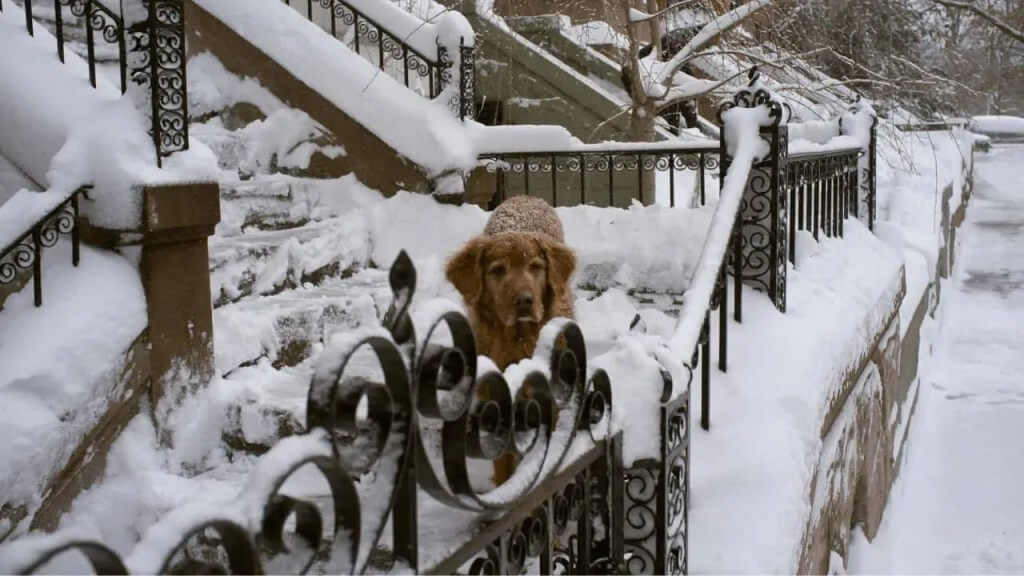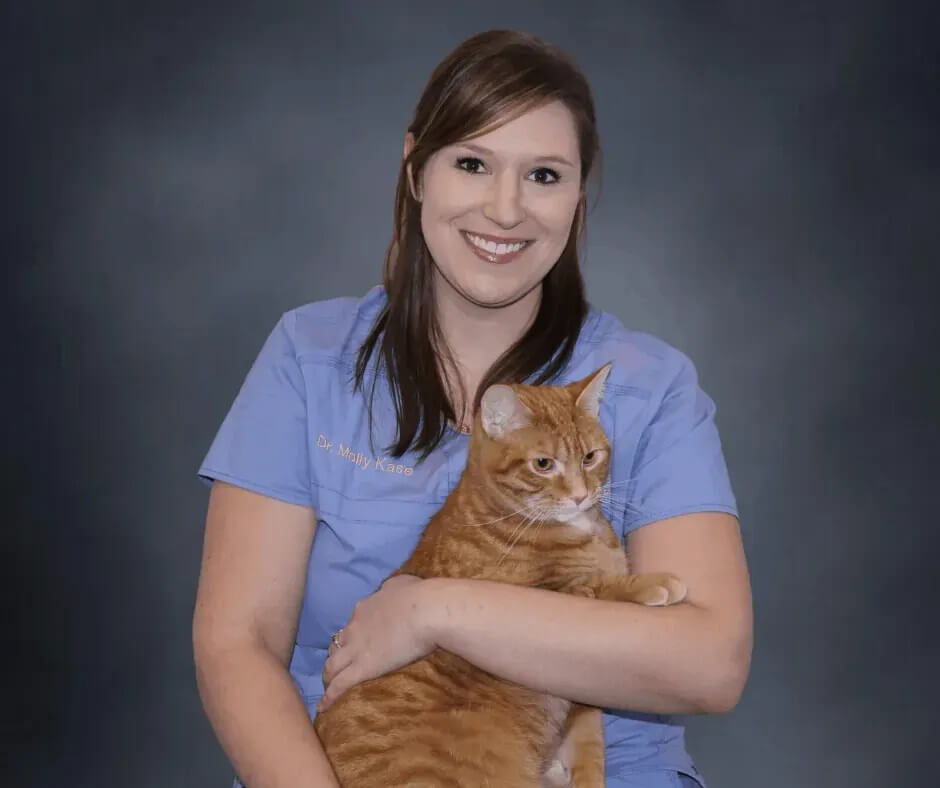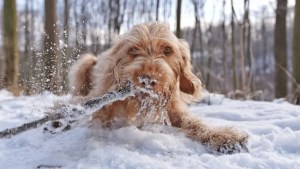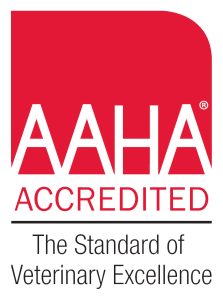


The weather is finally getting colder, and with that comes new health hazards for our pets. Some of these are rather obvious, but some are easy to forget about.
The first health hazard to be aware of is the effect of road salt on dog paws. Salt on paws can be an extreme irritant that can cause injuries to paw pads. Dogs can also lick the salt off their paws, which can be toxic to their systems. Care should be taken to avoid using rock salt in driveways and sidewalks (and use a pet-safe product instead), and winter booties should be applied to dog paws before walks while snow is on the ground.
Next, as the weather gets colder, many outdoor cats will seek the car engine’s warmth. They can get trapped underneath the hood of the car and become injured when the vehicle starts up. Take care to check under your hood before starting up your car on cold days, especially if you know there are feral cats in the neighborhood.
Frostbite can occur in pets just as in humans. It can vary from mild to severe and usually involves the tips of ears, tail, and toes. The first signs of frostbite include paling of the skin with a possible bluish/white hue- this indicates restricted blood flow. The skin may also feel harder than usual and become red, scaley, and swollen as it warms up. As the severity progresses, the skin may become blistered or darker in color, which may become dark green/black a few days after the initial injury.
Along similar lines as frostbite, general hypothermia may occur on frigid days. Symptoms of hypothermia include initial shivering, shallow breathing, and weak pulses/heartbeat. This can progress to disorientation, weakness, incoordination, and, eventually, loss of consciousness.
You can prevent frostbite and hypothermia by minimizing direct contact with ice and snow and decreasing the amount of time you and your pet are outdoors as the temperatures drop below freezing.
Another pet hazard commonly seen in winter is antifreeze toxicity. Unfortunately, antifreeze has a very sweet taste that does not deter animals from consuming it. Antifreeze contains ethylene glycol, which can be fatal to pets. Initial signs of possible toxicity include “drunken” behavior such as ataxia, vomiting/diarrhea, or disorientation. These can escalate to rapid heartbeat, seizures, comas, and eventually death. It would be best if you were sure to clean up known spills immediately and take precautions to prevent accidental access by your pet in your garage. There are also products on the market that contain propylene glycol that is safe if a pet happens to consume some.
Finally, we all know that cats love to play with strings and ribbons. As the Christmas decorations start coming out, cats will be interested in playing with and possibly consuming ornaments, tinsel, and garland. More often than not, cats will swallow strings entirely instead of chewing them up into pieces. This can lead to long strings getting stuck as they pass through the GI tract- this can cause the intestines to become plicated on one another. The only treatment for GI linear foreign material that has led to intestinal plication is surgery, which often comes with a long recovery time. Hanging up these decorations out of reach of your cat and monitoring them closely while you are decorating can decrease the chance of accidental ingestion.
For all of your pet’s seasonal needs and routine care, please call your veterinarian’s office. We are happy to provide guidance and diagnosis to help you and your pet have a safe and happy winter and holiday season.
About Brook-Falls
Brook-Falls Veterinary Hospital and Exotic Care is dedicated to providing quality care to all companion pets and exotic animals. Brook-Falls is a Menomonee Falls, WI-based full-service veterinary hospital with an extensive range of comprehensive medical, dental, diagnostic, and surgical services to meet the varying needs of all patients. Brook-Falls Veterinary also offers informational and educational media and seminars for pet owners by way of blogs, digital TV series (Expert Veterinary Television), e-books, whitepapers, infographics, and more.
For more information, contact Brook-Falls Veterinary Hospital & Exotic


